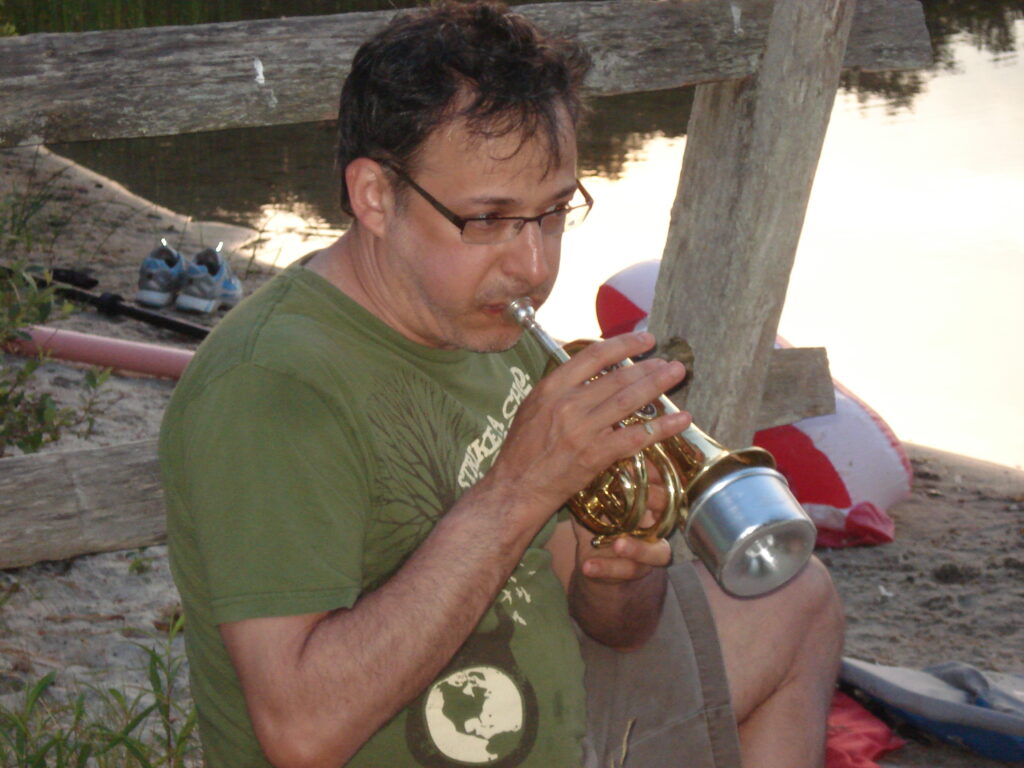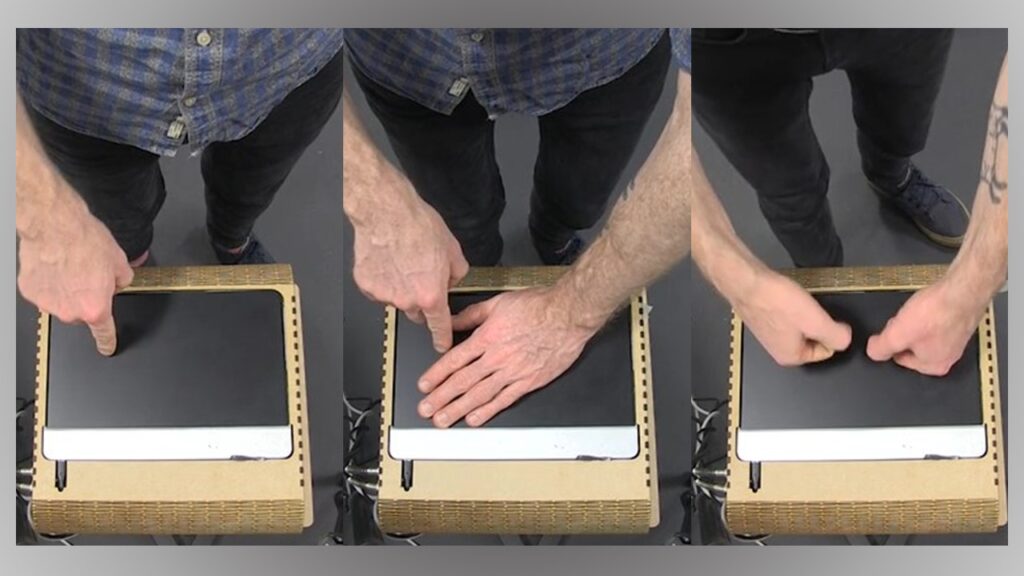Human Computer Improvisation
Chaired by Simon Waters
Eric Lewis – A (micro) Chip Off the Old Block–Emergent Minds in Human/Computer Interactions
Landon Morrison – Improvising Intra-actions in the Design and Use of Digital Musical Instruments: A Partial Perspective
Matthew Rodger & Bonnie Smith – The aesthetics of new musical instruments and the improvisational ecologies through which they co-develop
Eric Lewis – A (micro) Chip Off the Old Block–Emergent Minds in Human/Computer Interactions
The philosophical questions which human-computer improvisations raise often boil down to the alterity of computers from a human perspective. If improvisations are social, how can we enter into social relations with machines; if improvisations are means of communicating feelings, thoughts and desires, how can machines accomplish this; if improvisational methods are closely related to agency and will, can machines partake in them? Computers simply appear too different from us to discharge many of the roles which we think improvisors do when improvising. I addressed a number of these questions in my book Intents and Purposes, here I wish to suggest solutions to some of them from another angle. Recent advances in 4E Cognition (Extended, Embodied, Enacted, Embedded), coupled with cutting-edge cognitive science work into Theory of Mind, suggest that improvising ensembles—even those with computer participants—are best seen as adding a fifth “E”, that is Emergent. If improvising ensembles are viewed as cases of an emergent mind, then the alterity of computers is dissolved away, for they are really part of a single emergent mind, on par (but perhaps with some different capacities and functions) with the human improvisors.
Landon Morrison – Improvising Intra-actions in the Design and Use of Digital Musical Instruments: A Partial Perspective
The academic field of HCI is poised to enter an apparent “fourth wave” of research, this one guided by theories of entanglement, bringing together ideas from quantum physics, new materialist philosophy, and feminist technoscience. This paradigm shift promises to generate important insights for research on digital musical instruments (DMIs), but it is not immediately clear how theories of technocultural mediation can be converted into actionable design methods, and so far, HCI research has tended to focus narrowly on a few authors without engaging the rich literature on mediation found in music, media, and cultural studies.
This paper seeks to broaden the scope of discussion by drawing on sources at the edges of Entanglement-HCI discourse, examining critical work on the epistemic nature of musical instruments, the ideological function of interfaces, and the enabling conditions of their (im)material infrastructures. I read this work against the grain of my own partial perspective as a music researcher working on a collaborative, cross-disciplinary project at Imperial College London, where I’ve been following engineers and performers as they collectively improvise novel practices around the design and use of DMIs. The overall analysis shows how these musical actors are co-constituted through relational processes, suggesting an intra-active model of entangled creative agencies that resists strict formalization, remaining always messy and open to multiple theoretical interpretations.
Matthew Rodger – The aesthetics of new musical instruments and the improvisational ecologies through which they co-develop
Musical instruments can be understood as active components of broader ecologies formed by themselves, musicians, settings, events and places. Such musical ecologies are dynamic over time, shaped by their histories, and developing into the future. Given their emphasis on the dynamics of perception, action, development and participatory sense-making, the fields of ecological psychology and Enactivism may fruitfully be brought into contact with this line of thinking about music and instrument design, performance and learning. This work also has the potential to enrich those fields in return. There is a gap in ecological psychology and Enactivism in terms of understanding the role of aesthetics in perceiving, acting, exploring and learning, and likewise how these processes in turn shape and co-constitute aesthetic experiences. The interaction between these processes and aesthetics is possible due to the historicity and open-ended nature of musical ecologies, evolving into the future through exploration, performance and improvisation. Drawing on examples from research scenarios in which musicians of different background and experience interact with, explore, and improvise with newly designed musical instruments, we demonstrate some of the co- constitutive relationships between perceptual-motor intuitions, styles of interaction, and aesthetic dimensions of musician-instrument relationships and the improvisational musical ecologies they co- develop through.
Media
Book
Book Tickets for all free events via the link below. Spaces are limited, so book early to avoid disappointment.
Ticket Link


